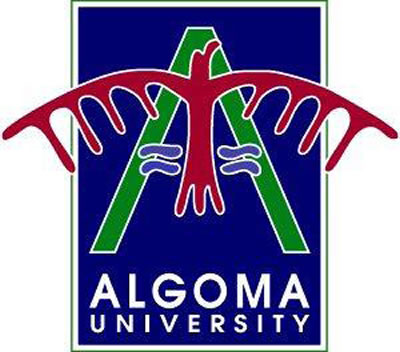Introducing online resources for student learning and research
Opportunity
As one of four universities in northern Ontario, Algoma University in Sault Ste. Marie is working to attract students from a small catchment area. A creative and flexible learning environment, with opportunities such as online and hybrid courses, can draw more students from within, and beyond, the region. As well, the University has a commitment to serving northern communities and students, which can be supported by online and off-site courses facilitated by technology. Algoma University is also moving forward in stages to a wider integration of online courses and resources for enhanced student learning.

Innovation
The introduction of hybrid and fully online courses, as well as social media, at Algoma University provides an example of how an innovation begins within an institution in a variety of departments and services.
Using Moodle, an open source learning management system, students are provided with grades, e-mail, teacher evaluation forms, lists of their enrolled classes, exam and course schedules, and access to library modules on how to do research, as well as how to prepare papers and bibliographies. About 70% of the professors have put their basic course information into the learning management system.
Algoma’s library created Digital Algoma, an online repository of all honours-year theses written by fourth year students. As well as providing important resources for student learning, Digital Algoma highlights the research capacity of an undergraduate university.
Online courses have been introduced in business administration, economics, statistics, mathematics, and computer science - subjects where there is likely to be more familiarity with technology.
A hybrid course the Computer Game Industry in the Computer Science Program provided the course outline and lecture highlights online, supplemented by discussion topics, wikis, and online assignments. Lectures and tests were classroom-based. Students were encouraged to take part in the discussions by receiving 1% of their final mark for each topic they contributed to.
An online course in mathematics used PowerPoint slides with audio to deliver the information that would usually be conveyed by video. The course was also available in both PDF and Flash so that format would not restrict student access. Tutorials were recorded with images and audio based on the professor’s experience in offering live tutorials and this was supported during office hours via Skype.
The NORDIK (Northern Ontario Research, Development, Ideas, and Knowledge) Institute evolved from the Community Economic and Social Development Program as a research institute with a socio-ecological approach to community development. Students are active in many of the community-based research projects which use social media for connecting participants, webinars for sharing expertise, and YouTube for highlighting projects. The students learn how to use social media for community development and research.
Synchronous videoconferencing and the WebEx webconferencing solutions are used to create a virtual classroom for the delivery of courses to students in Timmins linked with the Sault Ste. Marie campus.
Templates have been developed by the information technology support services to encourage and facilitate professors moving to online learning through the use of best practices.
Outcomes and Benefits
Students responded enthusiastically to the discussion topics in the Computer Game Industry course, posting images and links and interacting more than in face-to-face situations. The synchronous chat rooms also engaged the more reticent students in active learning and debate.
Students with learning disabilities benefitted from receiving the online lecture highlights the night before the lecture as they could prepare for the class and use the structure of the notes to guide their note-taking.
The students enrolled in the online maths class found the lectures and the tutorials engaging and effective for learning.
This student response to the online and hybrid offerings has indicated their openness to this delivery mode and recognition of how it can enhance their learning and participation.
Challenges and Enhancements
The major challenge is to work with the faculty so that they understand and welcome the opportunities that online learning can provide for student learning and course enhancement and delivery. There are insufficient incentives to motivate a change from the traditional, lecture-based method of course delivery.
Part-time faculty get a bonus for larger class sizes, which may be more easily achieved by adding a distance education component.
The technology itself presented some problems with failures in the videoconferencing connectivity between Sault Ste. Marie and Timmins which interrupted delivery and resulted in the Timmins students not being visible to the Sault Ste. Marie instructor for an entire semester.
Online course proposals are more difficult to assess and the courses themselves present challenges in determining what is being done and how it can be improved. The wider introduction of online learning requires an organization-wide training initiative.
The regional realities of a small student base makes cooperation between the universities more difficult and efforts, such as having one professor offer a distance education option to all four universities for small registration courses, have not been successful.
Potential
The process of change and acceptance is moving forward slowly but steadily. The first step is to get all professors using the learning management system and providing their course outlines and key information online. Then the transition can be made to hybrid and fully online courses that feature not only PowerPoint slides, but also student engagement. Professors have to become aware of what is possible and how they can be supported to achieve it.
Algoma University would be interested in sharing strategies with other post-secondary institutions in Ontario on increasing faculty acceptance and implementation of technologies for learning, processes and criteria for the assessment of online and hybrid learning, and cooperative online approaches that benefit everybody.
For Further Information
Dr. Richard McCutcheon
Academic Dean
Algoma University
[email protected]
Mike Biocchi
Academic Support
Information Technology Services Department
Algoma University
[email protected]
Gayle Broad
Associate Professor
Community Economic and Social Development
Algoma University
[email protected]


